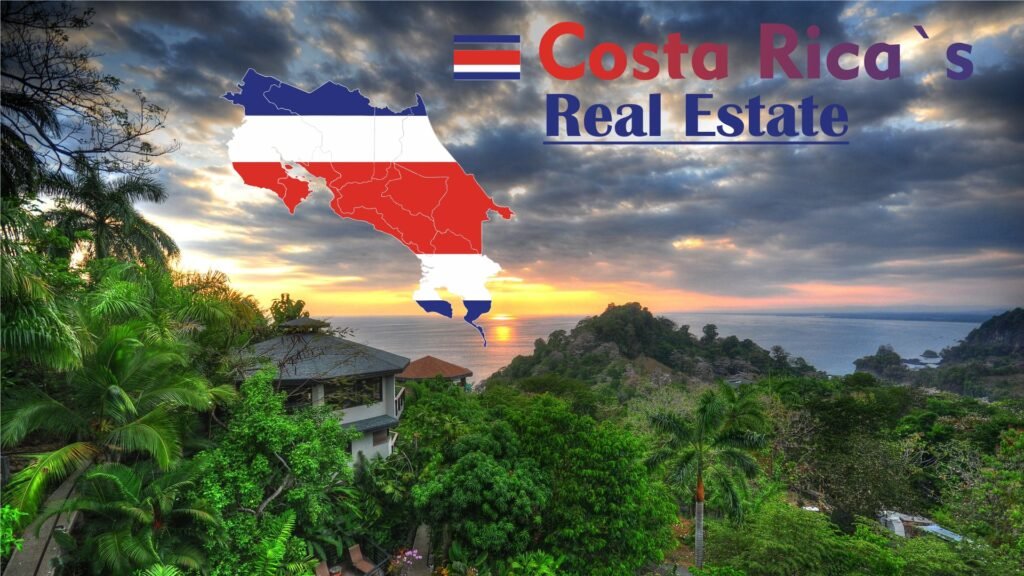Costa Rica’s Real Estate Market
Costa Rica has emerged as a highly sought-after destination for property buyers, particularly among expats and retirees seeking a slice of paradise. This Central American nation boasts an unparalleled natural beauty, with lush rainforests, pristine beaches, and breathtaking mountain vistas. Beyond its stunning landscapes, Costa Rica offers a stable political and economic environment, making it an attractive choice for those seeking a peaceful and secure place to call home.
The country’s tropical climate, with its warm temperatures and abundant sunshine, provides an ideal setting for an outdoor lifestyle and a relaxed way of living. Costa Rica’s commitment to environmental protection and sustainable practices further adds to its allure, appealing to eco-conscious individuals seeking a harmonious relationship with nature.
Moreover, Costa Rica has become a popular haven for expats and retirees from around the world, drawn by its affordable cost of living, excellent healthcare system, and welcoming culture. The country’s diverse communities offer a range of living options, from bustling cities to tranquil beach towns, catering to various preferences and lifestyles.
Types of Properties Available
Costa Rica offers a diverse range of property types to suit various preferences and budgets. Beachfront homes are a popular choice, providing direct access to the country’s stunning Pacific and Caribbean coastlines. These properties range from cozy bungalows to luxurious villas, catering to those seeking a tropical paradise or a serene retirement haven.
For those preferring a cooler climate and picturesque mountain views, mountain villas and cabins are available in areas like the Central Valley and the cloud forests of Monteverde. These properties often feature lush gardens, panoramic vistas, and a tranquil ambiance.
Condominiums and apartments are prevalent in urban centers like San José, as well as in popular beach towns like Jaco and Tamarindo. These properties offer a low-maintenance lifestyle and often include amenities like pools, gyms, and security.
Investors and developers may be interested in purchasing land for development purposes. Costa Rica offers ample opportunities for residential, commercial, or eco-tourism projects, with parcels available in various regions, from coastal areas to rural landscapes.
Regardless of the property type, buyers can expect to find a wide range of architectural styles, from traditional Spanish colonial to modern and contemporary designs, catering to diverse tastes and preferences.
Popular Regions for Buying Property
Costa Rica offers a diverse range of attractive regions for purchasing property, each with its unique charm and appeal. The Central Valley, nestled in the heart of the country, is a popular choice for those seeking a more metropolitan lifestyle with easy access to amenities and conveniences. Cities like San Jose, Escazu, and Santa Ana boast modern infrastructure, excellent healthcare facilities, and a vibrant cultural scene.
For those drawn to the allure of coastal living, the Guanacaste province on the Pacific coast is a prime destination. Tamarindo, a lively beach town, has become a hotspot for expats and tourists alike, offering a laid-back lifestyle, stunning beaches, and a thriving surf culture. Nearby, Playa Flamingo and Playa Conchal are renowned for their pristine beaches and upscale residential communities.
Further south along the Pacific coast, the Jaco and Los Sueños areas have gained popularity for their vibrant beach towns, world-class golf courses, and luxurious resorts. These regions offer a perfect blend of natural beauty and modern amenities, attracting both retirees and adventure seekers.
On the Caribbean side, the Limon province showcases a unique cultural heritage and breathtaking natural landscapes. Areas like Puerto Viejo and Cahuita offer a more laid-back and eco-friendly lifestyle, with stunning beaches, lush rainforests, and opportunities for outdoor activities like surfing, hiking, and wildlife watching.
Regardless of the region, Costa Rica’s diverse real estate market offers something for every taste and budget, from luxurious beachfront villas to cozy mountain retreats, making it an attractive destination for property buyers seeking their slice of paradise.
Buying Process and Legal Requirements
The process of buying property in Costa Rica as a foreigner involves several steps and legal requirements. It’s crucial to work with a reputable real estate attorney who can guide you through the entire process and ensure that all legal aspects are properly handled.
One of the first steps is conducting due diligence on the property you’re interested in. This includes verifying the property’s legal ownership, checking for any outstanding debts or liens, and ensuring that the property complies with local zoning and construction regulations. Your attorney will perform a title search and review all relevant documents to identify any potential issues or encumbrances.
Once you’ve found a suitable property and completed the due diligence process, you’ll need to obtain a Costa Rican tax identification number (cédula jurídica) if you’re a foreign buyer. This number is essential for completing the purchase and registering the property in your name.
Purchase agreement
The next step is to negotiate the terms of the purchase agreement, which will outline the details of the transaction, including the purchase price, closing date, and any contingencies or conditions. Your attorney will review the agreement to ensure that your interests are protected.
In Costa Rica, the transfer of property ownership is done through a public deed, which must be executed before a notary public. The notary will verify the identities of the parties involved, confirm the legal status of the property, and ensure that all legal requirements are met.
As a foreigner, you have the same rights as Costa Rican citizens when it comes to owning property in the country. However, there are some restrictions on purchasing properties located within certain zones near the borders or coastlines, known as the “Maritime Zone” and the “Frontier Zone.” Your attorney can advise you on any specific limitations or requirements related to these areas.
It’s important to note that the entire buying process can take several months to complete, depending on the complexity of the transaction and the availability of the necessary documentation. Patience and attention to detail are crucial throughout the process to ensure a smooth and successful property purchase in Costa Rica.
Property Prices and Affordability
Costa Rica offers a range of property options to suit various budgets. In popular beach destinations like Guanacaste and the Central Pacific, luxury beachfront villas and condos can cost upwards of $500,000, while more modest homes or condos start around $200,000. Prices in the Central Valley, including the capital San Jose and surrounding suburbs, tend to be more affordable, with homes ranging from $150,000 to $400,000.
For those on a tighter budget, it’s possible to find fixer-uppers or properties in more rural areas for under $100,000. However, these may require significant renovations or have limited amenities nearby. Alternatively, some buyers opt for land and build their dream home, which can be a cost-effective option in certain regions.
Overall, Costa Rica offers a diverse range of property options to suit various income levels and lifestyles. While luxury properties can be expensive, there are also many reasonably priced options, particularly for those willing to compromise on location or amenities. Careful research and working with a knowledgeable real estate professional can help buyers find the right property within their budget.
Financing Options for Property Buyers
Purchasing property in Costa Rica offers various financing options for both local and international buyers. Local banks, such as Banco Nacional, Banco de Costa Rica, and Banco Popular, provide mortgage loans to Costa Rican citizens and legal residents. International buyers can also obtain financing through these banks or explore options with international lenders.
For local financing, banks typically require a down payment of 20-30% of the property’s value, and the loan amount is based on the borrower’s income and credit history. Interest rates for mortgages in Costa Rica can range from 6-10%, depending on the lender and the borrower’s profile.
International lenders, such as banks in the United States or Europe, may offer financing options for non-residents looking to purchase property in Costa Rica. These lenders often require a higher down payment, usually around 30-40% of the property’s value, and may have stricter lending criteria.
It’s important to note that obtaining a mortgage in Costa Rica as a non-resident can be more challenging due to additional requirements and documentation. Lenders may require proof of income, credit history, and assets, as well as a comprehensive understanding of the borrower’s financial situation.
Regardless of the financing option chosen, it’s crucial to work with experienced real estate professionals and legal advisors to navigate the process and ensure compliance with local laws and regulations. Proper due diligence and a clear understanding of the terms and conditions of the mortgage are essential for a successful property purchase in Costa Rica.
Property Taxes and Ownership Costs
When it comes to owning property in Costa Rica, it’s essential to understand the various taxes and fees associated with property ownership.
These expenses can significantly impact your budget and should be carefully considered before purchasing.
One major cost is the transfer tax, or “impuesto de traspaso,” which is paid by the buyer. The rate is 1.5% of the higher of the registered property value or the sale price.
Additionally, property owners must pay annual property taxes, or “impuestos territoriales,” based on the property’s registered value. These taxes range from 0.25% to 0.55% of the property’s value, depending on the municipality.
Property taxes in Costa Rica are often lower compared to many other countries, making it an attractive option for real estate investment
Another cost to consider is homeowners’ association fees, or “cuotas de mantenimiento,” if the property is part of a condominium or gated community. These fees cover the maintenance and upkeep of common areas, security services, and other shared amenities. The amount of these fees can vary widely depending on the development and the services provided.
Beyond taxes and fees, property owners should also budget for ongoing maintenance costs, utilities, and any necessary repairs or renovations. It’s advisable to set aside funds for these expenses to ensure the property remains in good condition and retains its value over time.
Rental and Investment Opportunities
Costa Rica’s thriving tourism industry and growing expat community present lucrative opportunities for investors and property owners interested in rental income. Both short-term vacation rentals and long-term residential rentals are in high demand across the country.
For short-term rentals, popular beach destinations like Tamarindo, Jaco, and Manuel Antonio attract a steady stream of tourists seeking luxurious beachfront villas, condos, or vacation homes. These properties can command premium rental rates, especially during peak travel seasons. Proper marketing and professional property management services are key to maximizing occupancy and income.
Long-term residential rentals cater to expats, digital nomads, and locals seeking quality housing. Areas like the Central Valley, Guanacaste, and coastal towns offer a range of rental options, from apartments and townhouses to single-family homes. Consistent rental income and the potential for property appreciation make this an attractive investment strategy.
Beyond traditional rentals, Costa Rica’s real estate market also presents opportunities for real estate development and flipping properties. With the country’s growing popularity and limited housing supply in certain areas, there is demand for new construction projects and renovated properties.
Investors should carefully research market trends, location desirability, and rental demand before making any real estate investment decisions. Working with local real estate professionals and understanding the legal and tax implications is crucial for a successful investment strategy in Costa Rica.
Lifestyle and Amenities for Property Owners
Costa Rica offers an exceptional lifestyle for property owners, with a wealth of amenities and natural beauty at their doorstep. One of the biggest draws is the country’s stunning beaches, which stretch along both the Pacific and Caribbean coasts. From the world-renowned surfing destinations in Guanacaste to the laid-back vibes of the Southern Caribbean, there’s a beach to suit every preference.
For those who love the great outdoors, Costa Rica is a paradise. Property owners can enjoy hiking through lush rainforests, exploring volcanic landscapes, and spotting an incredible array of wildlife, including monkeys, sloths, and exotic birds. The country is also a haven for adventure enthusiasts, with opportunities for whitewater rafting, zip-lining, and more.
Golf enthusiasts will find themselves spoiled for choice, with numerous world-class golf courses dotting the country. Many residential communities and resorts feature their own championship courses, offering stunning views and challenging play.
When it comes to dining and entertainment, Costa Rica delivers a vibrant culinary scene, with a diverse range of restaurants serving both traditional Costa Rican fare and international cuisines. From lively beach towns to cosmopolitan cities like San José, there’s always something new to explore.
Healthcare is another area where Costa Rica excels, with a well-developed medical tourism industry. Property owners can access high-quality healthcare facilities, staffed by skilled professionals, at a fraction of the cost compared to many other countries.
Overall, Costa Rica offers a truly exceptional lifestyle for property owners, with a perfect blend of natural beauty, outdoor adventures, amenities, and a relaxed pace of life. Whether you’re seeking a retirement haven, a vacation home, or a permanent residence, this Central American gem has something to offer for every taste and preference.
Challenges and Considerations
Purchasing property in Costa Rica is exciting but comes with challenges. Language barriers are significant since Spanish is the main language, making legal documents and transactions tough without proficiency or a translator.
Cultural differences are also important. Costa Rican customs and business practices may differ from what you’re used to, so approach them with respect.
Infrastructure and utilities can vary. Major cities typically have reliable services, but rural areas might face issues like power outages, water shortages, or poor roads. Research the infrastructure in your desired area.
The buying process can be complex, with many legal requirements and paperwork. A reputable real estate professional and a knowledgeable attorney can help you navigate these complexities and ensure legal compliance.
Working with Real Estate Professionals
Navigating the process of buying property in Costa Rica can be complex, especially for foreign buyers unfamiliar with the local laws and customs. It’s crucial to work with reputable and experienced real estate professionals to ensure a smooth and secure transaction. Enlisting the help of a knowledgeable real estate agent, attorney, and other experts can provide invaluable guidance and protect your interests throughout the process.
A trustworthy real estate agent with extensive knowledge of the local market can help you find properties that meet your specific needs and budget. They can provide insights into different neighborhoods, amenities, and potential investment opportunities. Additionally, they can assist with negotiations, paperwork, and navigating the legal requirements for purchasing property as a foreigner.
Buying property in Costa Rica
Engaging the services of a qualified attorney is also highly recommended when buying property in Costa Rica. An attorney can review contracts, verify property titles, and ensure compliance with all legal requirements. They can also advise you on tax implications, ownership structures, and any potential legal risks or issues that may arise during the transaction.
Other professionals you may need to work with include property inspectors, surveyors, and tax advisors. Property inspectors can assess the condition of the property and identify any potential issues or necessary repairs. Surveyors can verify property boundaries and ensure accurate measurements. Tax advisors can provide guidance on the tax implications of owning property in Costa Rica and help you plan accordingly.
Resources for Property Buyers
When it comes to buying property in Costa Rica, having access to reliable resources can make the process much smoother.


